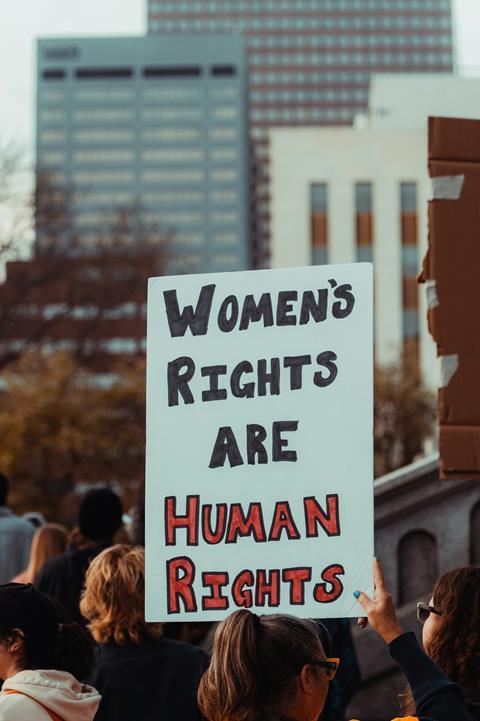Writer Michelle Tant marks 50 years since the Sex Discrimination Act, linking modern equality laws to the biblical justice shown in Zelophehad’s daughters.

It’s been just 50 short years since women were permitted in law to own property or open a bank account without a male signature or guarantor. Until the 1975 Sex Discrimination Act, women lacked independent economic status and this exacerbated other inequalities experienced by women for example being able to leave domestic abuse situations.
The 1975 Act paved the way for the 2010 Equality Act, enshrining in law freedoms such as being able to breastfeed in public without fear of being moved on. These rights on the surface seeming to be unrelated but both represent a woman’s ability to go about a usual life unrestrained by archaic norms.
READ MORE: Some Christians aren’t keen on feminism, but I think fighting for women’s rights often doesn’t go far enough
So, while this anniversary certainly should be championed as a celebration of equality, it is worth noting that it is only the modern fulfilment of a law instituted in Numbers 27 in the Old Testament. As is so often the case in scripture, God’s plan for human flourishing runs counterculture to the ways of humans themselves. The laws of the UK and indeed many other places, are historically shaped on male-centric values, largely since women have not been permitted access to the places where the laws are made. It should come as no surprise therefore that corrective measures such as the Acts above were needed because God always had a better way.
In turning to the scriptures, it is assumed that male inheritance is the law, after all the Bible is peppered with the patrilineal narrative.
In turning to the scriptures, it is assumed that male inheritance is the law, after all the Bible is peppered with the patrilineal narrative. However, it was mainly described as a cultural norm in the early books, and not always terribly successfully or wise, for example in Gen 25:29-35 when Esau sold his birth ’right’ to Jacob for a bowl of stew! It is later mentioned in Deuteronomy when it is said that the firstborn son inherited a double portion of all the father’s possessions (Deut 21:15-17). But even here it is discussed in the context of avoiding punitive favouritism and as a reminder that God’s mercy and justice is in the very DNA of his laws.
READ MORE: How God changed my thinking and led me to start a women’s movement
We finally see inheritance be finally established in law with explicit equality when the land was being divided after the conquering of Canaan, and Zelophehads daughters realised they would suffer an injustice (Num 27:1-8). They bravely stood before an imposing council of men (v2) and spoke up for the justice of their family. Moses would have seen no specific instruction on this in the existing law and it’s not unthinkable that this is because equality and justice should have been implied through it, but he still sought Gods counsel because he was also still a man of his time. This is perhaps confirmed in God’s response; “Zelophehads daughters are correct”. He wasn’t changing his mind. God was affirming a truth which had been hidden by cultural norm.
READ MORE: Is the Government finally prioritising women’s health?
It is interesting that Zelophehads daughters are named five times in the Old Testament as women who stood up for an injustice and against a prevailing cultural tradition.
It is interesting that Zelophehads daughters are named five times in the Old Testament as women who stood up for an injustice and against a prevailing cultural tradition. This story was important and bore repeating for those who perhaps weren’t listening the first time. Furthermore, they spoke up at a pivotal time when to say nothing would have drastically impacted the lives of women later. There is no doubt that to approach the council and Moses would have required great bravery and a rejection of any suggestion of imposter syndrome. We can therefore look to them for inspiration to speak up persistently on matters of injustice, even when we feel that our voices will be small or hidden. Our God who hears, and whose laws are drenched in love and justice will hear and act, and this is what I will remember on this 50th anniversary of the anti-discrimination law.




































No comments yet